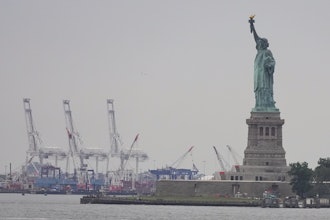You know the scene. Whether it’s the latest Star Wars movie for some other chase involving good guys and bad guys, there’s always that part about disabling the tracking device.
Well, it seems some of that is very real for a number of commercial fishing operations. The vast majority of these boats are outfitted with anti-collision devices called Automatic Identification Systems, or AIS. These systems use GPS to identify where other boats are located so vessels can steer clear of each other.
The good and the bad of these systems is that if you’re pirate looking to pillage and plunder, the AIS basically works like a treasure map. However, the Coast Guard and other law enforcement agencies can also use AIS to keep tabs on everybody. The combination of applications has led a number of commercial fishing boats, particularly those roaming around Central and South America, to shut off their AIS.
They say it’s to avoid pirates, but others see it as a way for these vessels to harvest fish from protected fisheries, marine reserves and even World Heritage Sites without being seen on radar.
“Going dark” means these boats are going into areas where coral, turtles and fish like yellowfin tuna and blue sharks are supposed to be protected from commercial fishing. In addition to simply being illegal, accessing these waters puts local economies that depend on traditional fishing for food and tourism at tremendous risk.
And before you brush off the implications of these activities, consider that the U.S. State Department considers illegal fishing a national security threat because of the criminal organizations being drawn to the money that can be made. According to an article on Business Insider, up to 20 percent, or at least $30 billion of the global seafood supply, comes from illegal sources. These activities not only harm legitimate businesses, but place these fisheries, which feed millions of people, in even greater danger of being depleted.
Oceana, a leading nonprofit organization focused on restoring and protecting the world’s oceans, feels nations should require commercial fishing vessels to broadcast tracking data and require the use of tamper-proof AIS devices.






















